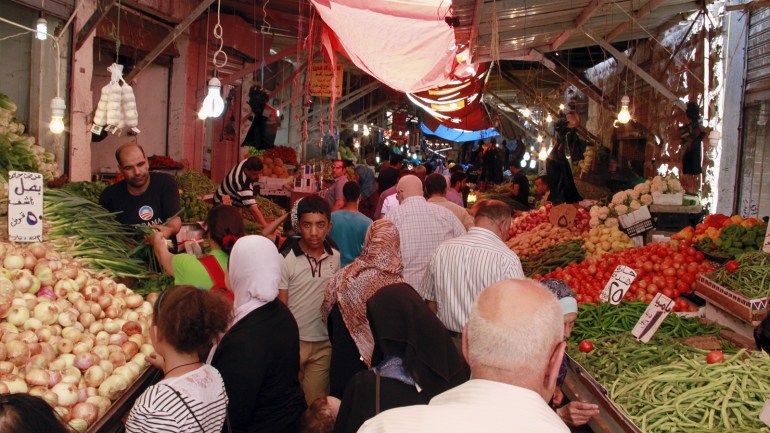The suffering of Jordanians, like other Arab expatriates abroad, varies between layoffs and job losses, salary cuts, cancellation of privileges and incentives, and ultimately a return to Jordan that is filled with anxiety about the future and fear for the next.
More than a quarter of a million Jordanian expatriates in the Gulf countries are threatened to return to the Kingdom after they lost their businesses due to the Corona pandemic, while 8 of every 10 Jordanian expatriates were affected or their monthly income was negatively affected by the pandemic, and 2 out of 10 who retained their jobs specifically, were not affected negatively Or positively.
Are coming home
This was part of the results of an opinion poll conducted by the Center for Opinion Polls about the impact of the Corona pandemic on Jordanian expatriates in the Gulf, as the poll revealed that "more than 60% of Jordanian expatriates want to return to the homeland, and 36% of them are forced to return severely."
These people are forced to return to Jordan for a number of reasons, the most prominent of which are the high cost of living and low income in the countries of expatriation, the loss of their work, and their desire to be in the vicinity of their families, in addition to the spread of the Corona epidemic extensively in the countries of expatriation with the possibility of infection, and the lack of medical services for people infected with the virus.
According to the results of the survey, more than a third of the Jordanian expatriates lost their jobs due to the Corona pandemic, and in the Gulf, about a quarter of the Jordanian expatriates who lost their jobs worked in the educational sector.
And about another quarter of those who work in the technical and industrial sector, followed by workers in the services sector and the commercial sector, and even workers in the health sector have demanded the loss of their jobs according to what 5% of the respondents said.
The next most difficult
"The next is difficult, especially with the expectation of the return of about a quarter of a million Jordanian expatriates from the Gulf countries after they were laid off from their jobs and job losses," the head of the Jordanian Businessmen Association, Hamdi al-Tabaa ', told Al Jazeera Net.
He added that the remittances of Jordanian expatriates have decreased by 8% during the past five months, and will decrease significantly, which will deepen the economic crisis of the Kingdom. The remittances of Jordanian expatriates each year amount to about $ 3 billion.
And unemployment rates, which reached about 19% last year, increased due to the Corona pandemic and reached 22% currently, and with the return of expatriates, this percentage will increase, in addition to its psychological and social effects on the returnees of their families.
With the current and upcoming situation difficult in the near future, there are promising sectors that can provide employment and investment opportunities for returnees, such as the agricultural, food, pharmaceutical, and IT sectors, among others.
The surprise in the poll results is that only 14% of Jordanian expatriates can bear the costs of returning to the homeland, and 86% cannot. This indicates another bleak result of the damage caused to expatriates there, bearing in mind that the return expenses this time are more than normal. Considerations for costly institutional stone, especially for families.
National plan
The General Supervisor of the World of Opinion Center, Samer Abu Rumman, told Al-Jazeera Net that there was a pre-existing vulnerability of Jordanians from the high costs of fees and accommodation, especially in Saudi Arabia and the UAE, in addition to "the feeling of the Gulf citizen about the competition of the Jordanian resident for the job."
He added that Jordanian labor is not separated from what happened in the global corona’s repercussions in losing jobs, to which there is a decrease in the price of oil, and a weak economy due to the response to the epidemic and its costs, so the methods of compensation were dispensing with foreign labor, and workers in the private sector are the most affected, including Jordanian labor, and as It is well known that government work for the people of the country is citizens.
Abu Rumman suggested a number of solutions to confront this crisis, the most important of which is the development of a national plan to deal with the crisis because the number is large, with the need for Jordanian embassies to play their role in support and networking.
In addition to the need to use Jordan's relations and official channels to try to protect employment in the Gulf countries and search for alternatives.
The poll results showed that more than half of the Jordanian expatriates dealt with the Jordanian embassies in their countries of residence, but only 12% were satisfied with their dealings with them during the pandemic.
6 out of 10 Jordanian expatriates expressed their satisfaction with the performance of the Jordanian government in its handling of the Corona pandemic.
According to the statistics of the Jordanian Ministry of Foreign Affairs, the number of Jordanian expatriates exceeds one million, distributed in 70 countries, of whom about 800 thousand reside in the Gulf countries.

